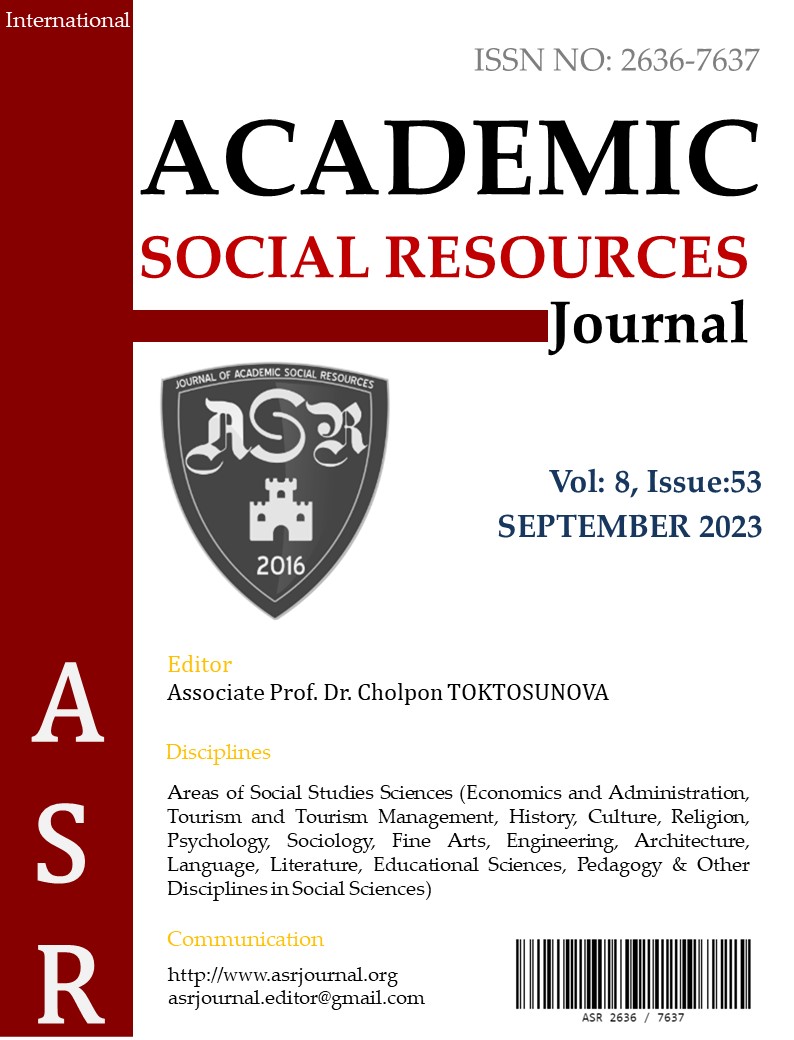Author :
Abstract
Bu çalışmanın amacı okul kültürünün öğrenci başarısına etkisine yönelik öğretmen görüşlerinin değerlendirilmesidir. Bu çalışmanın yöntemi belirlenirken nitel araştırma tekniklerinden fenomenoloji deseni tercih edilmiştir. Araştırma grubu, amaçlı örnekleme yöntemlerinden biri olan maksimum çeşitlilik örnekleme stratejisi kullanılarak seçilmiştir. Bu yöntemle araştırmaya dahil edilen 14 öğretmen araştırmanın çalışma grubunu meydana getirmektedir. Verilerin toplanmasında yarı yapılandırılmış görüşme formu kullanılmıştır. Veriler içerik analizi kullanılarak analiz edilmiştir. Öğretmen görüşleri, olumlu bir okul kültürünün öğrencileri akademik, sosyal ve kişisel gelişim açılarından olumlu yönde etkilediğini vurguluyor. Bu olumlu kültür, öğrencilerin özgüvenlerini artırabilir, liderlik yeteneklerini geliştirebilir, işbirliği ve iletişim becerilerini güçlendirebilir ve ahlaki değerleri kazanmalarını sağlayabilir. Ayrıca, bu kültür öğrenci ilgisini artırarak daha anlamlı öğrenme deneyimleri sunabilirken, olumsuz bir kültürün ise öğrenci motivasyonunu ve başarı inançlarını olumsuz etkileyebileceği ifade ediliyor. Bu sonuçlar, okulların olumlu bir kültürü benimseyerek öğrenci katılımını teşvik eden stratejilere odaklanması gerektiğini gösteriyor. Öğretmenlerin önerdiği yaklaşımlar, öğrenci merkezli yaklaşımlar, etkileşimli yöntemler, seçim özgürlüğü ve öğrenci görüşlerine değer veren bir ortam oluşturma gibi stratejileri içeriyor.
Keywords
Abstract
The aim of this study is to evaluate teachers' views on the effect of school culture on student achievement. While determining the method of this study, phenomenology design, one of the qualitative research techniques, was preferred. The research group was selected using the maximum diversity sampling strategy, which is one of the purposeful sampling methods. The 14 teachers included in the research with this method constitute the study group of the research. A semi-structured interview form was used to collect the data. The data were analyzed using content analysis. Teachers' views emphasize that a positive school culture positively affects students in terms of academic, social and personal development. This positive culture can increase students' self-confidence, develop their leadership abilities, strengthen their cooperation and communication skills, and enable them to acquire moral values. It can also increase student interest and provide more meaningful learning experiences, whereas a negative culture can negatively impact student motivation and beliefs about success. These results suggest that schools should adopt a positive culture and focus on strategies that encourage student engagement. The approaches suggested by teachers include strategies such as student-centered approaches, interactive methods, freedom of choice, and creating an environment that values student opinions.





